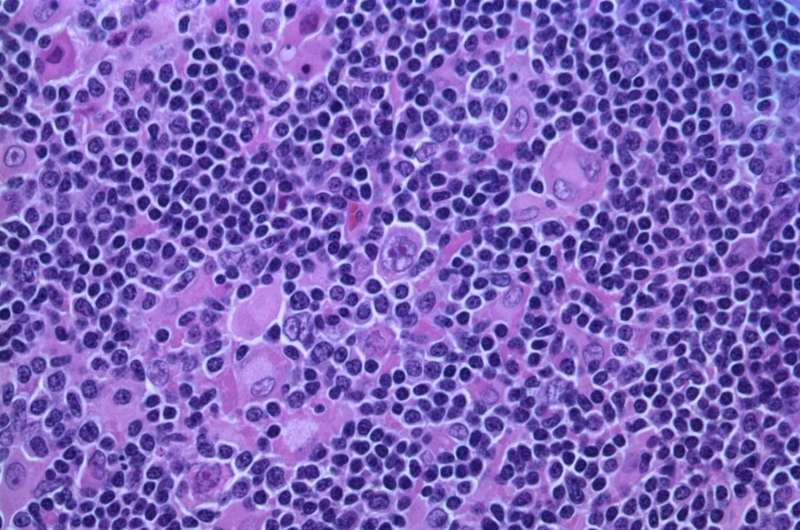Lymphoma's Impact on Aging of Immune System and Tissues Beyond Treatment

A recent study reveals that lymphoma can accelerate aging in immune cells and tissues, independent of treatment, shedding light on systemic effects of cancer beyond tumor growth.
Recent research from the H. Lee Moffitt Cancer Center & Research Institute has revealed that lymphoma can accelerate the biological aging process of the immune system and various tissues in the body, independent of treatment effects. This groundbreaking study, published in Cancer Cell, provides new insights into how cancer influences the body beyond tumor growth. The researchers found that B cell lymphoma prompts rapid transformation of young T cells, crucial components of immune defense, into an aged-like state characterized by increased inflammation, disrupted protein homeostasis, and altered iron regulation. These age-related markers were also detected in blood vessels, kidneys, and intestines, indicating systemic effects.
Senior author John Cleveland, Ph.D., emphasized that lymphoma alone is sufficient to cause signs of systemic aging, partly explaining why many cancer patients exhibit age-associated symptoms even before undergoing therapies like chemotherapy or radiation. The study challenges the traditional view that treatment is the primary cause of accelerated aging in cancer patients, suggesting instead that the cancer itself plays a significant role.
Lead author Rebecca Hesterberg, Ph.D., highlighted potential therapeutic opportunities arising from these findings. Certain aging-related changes, such as excess iron accumulation and defective protein quality control in T cells, were reversible in animal models following tumor elimination. These findings open avenues for interventions that could protect or restore immune function by targeting the aging processes induced by lymphoma.
Given the rising global aging population and increasing cancer risk with age, understanding how cancer interacts with aging biology is crucial. The study underscores the importance of addressing systemic effects of cancer and developing treatments that not only combat tumors but also mitigate their impact on the aging process.
Overall, this research emphasizes that lymphoma’s influence on the body goes beyond local tumor effects, contributing to systemic aging phenomena that could affect patient outcomes and quality of life.
Stay Updated with Mia's Feed
Get the latest health & wellness insights delivered straight to your inbox.
Related Articles
Revolutionary AI Technology Interprets Echocardiograms in Minutes
A new AI-powered tool can interpret echocardiograms rapidly and accurately, transforming cardiovascular diagnostics and potentially expanding access in resource-limited settings. Source: Yale School of Medicine.
Exposure to Outdoor Trichloroethylene May Increase Parkinson's Disease Risk
Long-term outdoor exposure to the industrial solvent trichloroethylene (TCE) may be linked to an increased risk of Parkinson's disease, according to recent research. This study highlights the importance of environmental health monitoring and regulation.
How Professional Athletes Are Challenging Age Limits in Sports
Elite athletes are now competing longer and setting new age records thanks to advances in training, medical care, and nutrition. Discover how science is redefining age in sports.
NYC Workers at Increased Risk During Extreme Summer Heat: New Study Highlights Occupational Threats
A new study highlights the increased risk of heat stress among NYC workers, with thousands vulnerable to rising temperatures and future heat waves projected to intensify. Effective policies are crucial for worker safety.



